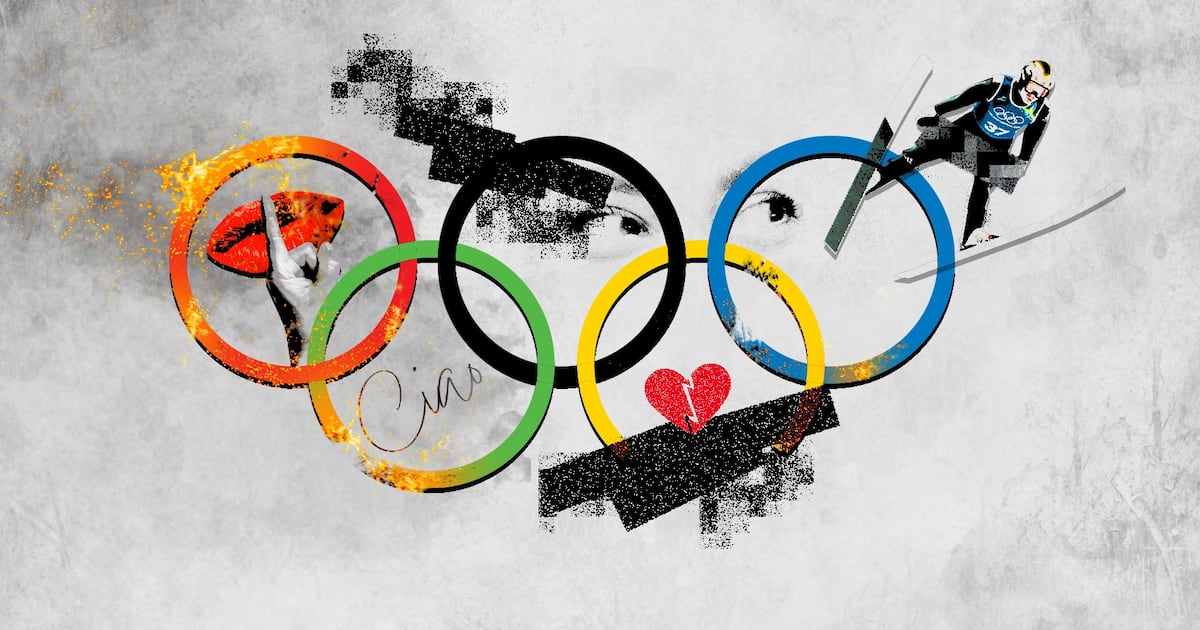
Jacqueline Novogratz, who will speak at The Daily Beast's Women in the World Summit this weekend, is all business in her approach to attacking the gap between rich and poor. She talks about her adventures in Africa and writing her best seller.
Jacqueline Novogratz, founder of a nonprofit venture capital fund that serves the developing world and best-selling author of The Blue Sweater, is a former banker who is all business about closing the widening gap between the rich and the poor in developing countries. She became a globalist early on in her life, a moment that is crystallized in the incredible anecdote that begins her book. While jogging in Kigali, Rwanda, Novogratz spotted her castoff blue sweater, given to her by her Uncle Ed when she was a kid, on a little boy. She had tossed the beloved sweater in the Goodwill bin in Virginia a decade earlier, after a classmate teased her about it. She ran up to the little boy and tried to explain that he was wearing her old sweater. She turned down the collar and saw her name written on the tag. The lesson she learned was simple, but became a mantra for her: "Our actions—and inaction—touch people we may never know and never meet across the globe," she wrote.
"I think I still have a great sense of adventure and trust and am surprisingly idealistic given all the horrible things I've seen since I was 25," she says.
Novogratz stole moments to write her book late at night while keeping her her nonprofit Acumen Fund running during the day. In it, she recalls her time in Rwanda building a microfinance institution, attending Stanford Graduate School of Business, returning to the country after the genocide to try to make sense of the crimes, and building her new philanthropy. "It turns out it was all about, do you really believe in an interconnected world, and what kind of systems do you create for that world. And it all went back to that blue sweater," she says.

Novogratz, who is participating in The Daily Beast's Women in the World summit this week, has transformed the way people think and talk about philanthropy with her idea of "patient capital," a way of investing in businesses in developing countries at below-market returns and for longer periods of time. Donors are called investors, and they expect a return on their capital measured in social change. Aided by a lot of management support, the businesses are expected to scale up to serve at least a million customers with basic services. One of the many topics that gets Novogratz excited is empowering the poor in developing countries by treating them as customers with choice. Even people who earn a dollar a day want choices on how to spend that money, and building local businesses to create that choice also creates jobs for low-income people, which empowers them to have more choice as consumers.
Some of Acumen's success stories: an entrepreneur who started a bed net factory that employs 7,000 people, mostly women; a chain of hospitals that delivers babies in India for slightly higher prices than the government hospitals but under much better conditions; and a plant in India that provides clean water to a quarter of a million rural poor people. The fund has invested $40 million so far, and hopes to reach $250 million in the next seven to eight years.
• Tina Brown—Women in the World: Stories and SolutionsLong before Novogratz founded Acumen in 2001 and shook up the philanthropy world, she was a just-out-of-college banker at Chase Manhattan. At her job, she helped write off loans for the elite in developing countries, and wondered about the nations' middle class and poor, and why they couldn't get credit. She quit and moved to Africa to work at The African Development Bank. At her first job in Cote d'Ivoire, she was warned that her resentful co-workers might try to poison her, and she did become mysteriously, wretchedly ill for a week, eventually moving home to recover from the disastrous work experience. Then it was on to Rwanda, where she helped found a microfinance institution that serves women. Novogratz worked with 20 unwed mothers, called prostitutes by their neighbors, to make a bakery profitable. The women quickly went from earning 50 cents a day to up to $3.
"The reason why they were called prostitutes is the landlord would sleep with them," Novogratz says. "'You can't pay? You give me sex.' And suddenly for the first time, the women could be like, ‘No here's the money, no.' And I saw the transformation that was all about in some ways the ability to say no." She saw that one or two extra dollars a day made the difference between being powerless, having no choice, and being able to make your own decision.
Novogratz left Rwanda before the genocide in 1994, but returned in 1997 to try to make sense of how the massacre could have happened. One of the women who helped found the microfinance institution with her was in jail for encouraging the genocide as the leader of Parliament. Another of her former co-workers had lost much of her family in the mass killings. The bakery she had founded was now occupied by a squatter who had never heard of the structure's former incarnation. No one was left unscathed. But though Novogratz has seen horrible things in her quest to reach the world's poorest, she says she has not lost the idealism she had as a 25-year-old determined to save the world.
"I think I still have a great sense of adventure and trust, and am surprisingly idealistic given all the horrible things I've seen since I was 25," she says. "I think how I have changed is that I have a much deeper understanding of the dark forces in the world, of power."
Although Novogratz got her start on Wall Street, she has occasionally had trouble convincing financial titans of the viability of her particular mission. She says she once got into an argument with someone who worked at a hedge fund about subprime mortgage loans. He said that as long as no more than 90 percent of people default, the system works. Novogratz was shocked, since for Acumen Fund to succeed, it's vitally important that every single person pays back. "What we're saying is, in an interconnected world we have no choice but to think of ourselves as one tribe. And if we think of ourselves as one tribe, there is a place in it for this kind of patient capital that is really used for each others' success since we're vested in each others' success."
Novogratz is not embarrassed to shine a light on the world's problems, and in that way shares something in common with New York Times columnist Nicholas Kristof, who is a big fan of Novogratz and worked to bring attention to the genocide in Darfur through his writing.
"I adore Nick Kristof," she says. "Once he said to me, ‘I really like you because you're not anti-sweatshop.' I said, ‘Nick! What a terrible thing to say!'" She laughs. "I think both Nick and I have seen enough of the really awful in the world to realize that the perfect is really the enemy of the good."
In her book, Novogratz conveys the frustrations of trying to transform inefficient charities from within, and of the often Sisyphean nature of making any progress. She skewers the good intentions of unwieldy projects because they are not enough: Results are what matters. She also grapples with the complexities of helping the poor from the place of privilege, and stresses that any change must come from the people themselves.
Novogratz has the simultaneous intensity and calm of someone who is doing what she believes in. "When I see people that are my age and reaching 50, the ones that are really sparkly and full of joy are the ones that are committed to something bigger than themselves," she says.
Liz Goodwin is an assistant editor at The Daily Beast. She has written for the New York Sun, GothamSchools, the Tico Times, and Fodor's Travel Guides.






